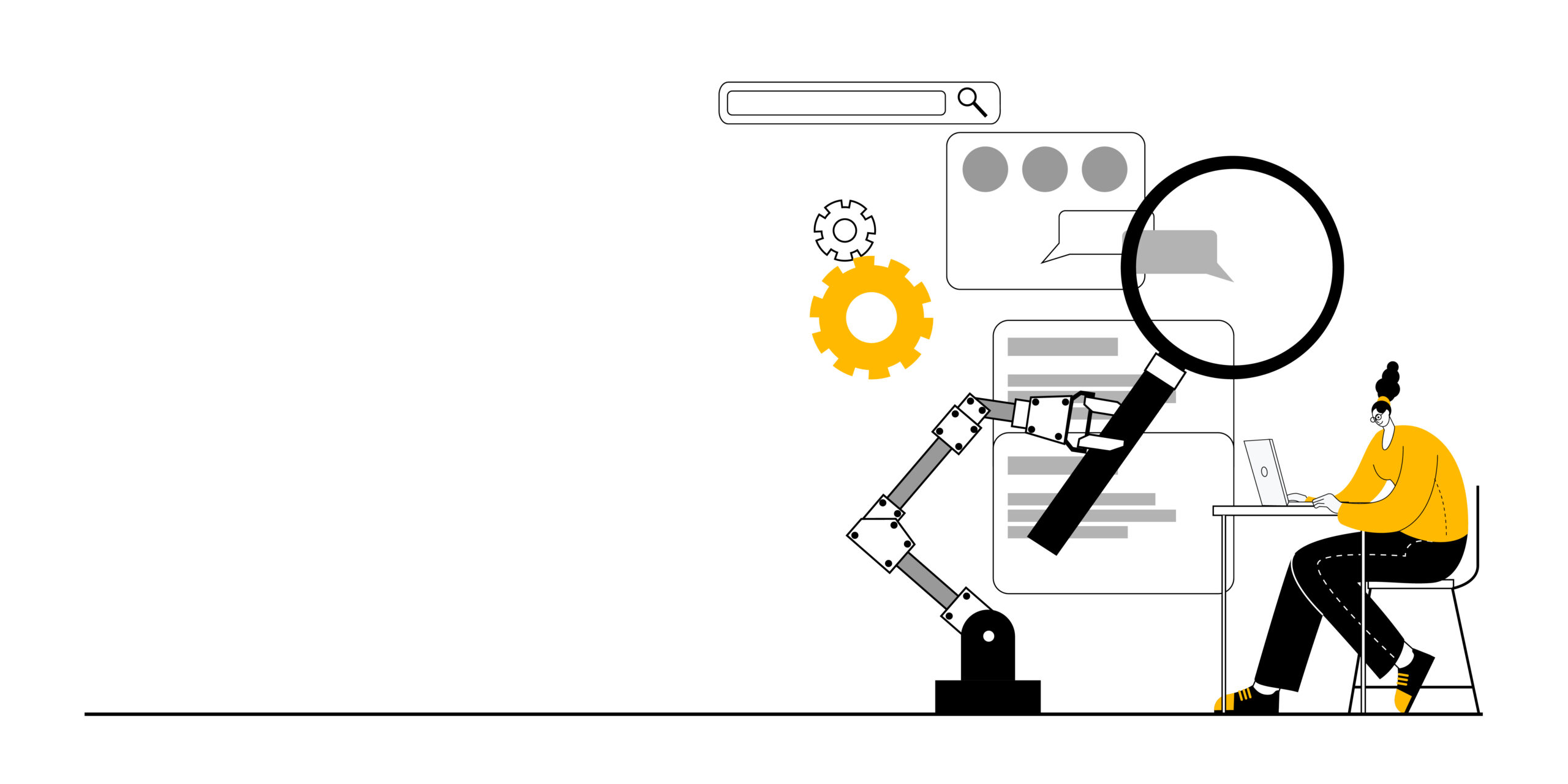Search Engine Optimization (SEO) is an intricate web of practices aimed at enhancing the visibility of websites on search engines. Within the broad range of SEO, a specific segment focuses on the technical aspects of a website. This segment is referred to as Technical SEO.
Table of Contents
Introduction to Technical SEO
Technical SEO relates to all the activities excluding the actual content, that enhances the foundation and backend structure of a website. It ensures that search engines can easily crawl, interpret, and index a website’s content.
Basic Principle
The basic knowledge about technical SEO lies in its aim: improving the website’s infrastructure so search engines can understand and rank it better. It doesn’t revolve around content, but rather the settings and technical elements that enhance content value.
Key Elements of Technical SEO
Website Speed and Performance
- Load Times: The time taken by websites to load affects user experience and search rankings. Google PageSpeed Insights is a valuable tool for assessing load speed and obtaining suggestions for improvement.
- File Sizes: Large files can hamper the loading speed. It’s essential to optimize file sizes without compromising quality.
- Server Response Time: The preparation time for a server to respond to a search query can influence experience signals. A quicker response time contributes to a better user experience.
- Hosting: Reliable hosting services are crucial. A comprehensive hosting tool ensures that your website is available most of the time, reducing downtime.
Mobile Optimization
- Mobile Users: With the growing number of mobile users, it’s crucial to ensure a seamless mobile experience. Google’s Mobile-Friendly Test can identify if a site is optimized for mobile versions.
- Mobile-First Index: Search engines like Google prioritize mobile versions. Thus, ensuring mobile optimization can positively impact organic rankings.
Crawlability and Indexability
- XML Sitemap: This is a list of URLs that guides search engine bots, like Google Search Console’s spiders, on which pages to index.
- Robots.txt File: This file instructs search engine robots about which pages not to crawl.
- Search Engine Crawlers: Tools like Google Analytics and Bing Webmaster Tools allow webmasters to see how often search engine spiders visit their site.
- Crawl Errors: These are technical SEO issues that prevent search engine crawlers from accessing particular pages. Common error types include server errors and dead links.
Internal and External Linking
- Internal Links: Links that guide visitors to another piece of content on the same website. They aid in spreading link equity across sites and boosting page authority.
- External Links: Linking to credible sites enhances the credibility of your website. However, ensure that external links are to high-quality content.
- Broken Links and Dead Links: These are links that lead to non-existent pages. Broken links can harm user experience and need immediate fixing.
- Redirects: Proper redirects, using tools like Ayima Redirect Path, ensure users and search engines are led to the correct version of a page, especially if the original URL has changed.
Advanced Technical SEO Issues and Solutions
Duplicate Content
- Issues: Duplicate content issues arise when similar content appears on multiple URLs. It’s a common issue that can harm rankings.
- Solutions: Use canonical tags to indicate to search engines which version is the primary version.
Security
- Secure Sockets Layer (SSL): Ensures data transfer between users and the sites they connect to is secure.
- Browser Caching: Leveraging browser cache for files enhances loading time, as modern browsers can recall the previously loaded version.
Multi-Lingual Websites
- Adjusting the SEO for multi-lingual sites ensures that search engines can understand which languages you’re using and for which audience.
Technical SEO Audit
What is a Technical SEO Audit?
A technical SEO audit involves analyzing a website to identify technical issues affecting its performance in search rankings. Tools like Semrush’s Site Audit can assist in this comprehensive review.
Audit Internal Links to Improve Your Chances
Reviewing internal links is crucial. An efficient internal linking strategy can increase the click-through rate and elevate the user’s time spent on the website.
Backlink Audit
Using backlink audit tools, you can assess your site’s backlink profiles and ensure they consist of relevant links from credible sites.
Tools and Services
There’s an array of SEO tools and services available to help:
- Google Search Console and Bing Webmaster Tools: Essential for all webmasters to monitor and optimize the visibility of their websites.
- Google Analytics: An analytics service that offers insights into website traffic and performance.
- SEO Audit Tools: Semrush, Ayima, and more offer comprehensive insights and tests to check the technical health of websites.
Technical SEO: Order in the Chaos Technical SEO is a vast and dynamic field. By mastering technical elements and ensuring your website’s backend structure is optimized, you can offer users and search engines a better experience, which in turn enhances the visibility and ranking of your website. Whether you’re a newbie or have advanced knowledge, staying updated with the latest in technical SEO is crucial for success.

Technical SEO FAQ
What is Technical SEO?
Technical SEO relates to the backend structure and foundation of a website, ensuring search engines can efficiently crawl, interpret, and index a website’s content, without directly focusing on the content itself.
Why is website speed important in Technical SEO?
Website speed impacts user experience. Slow load times can lead to a higher bounce rate and negatively affect organic rankings. Tools like Google PageSpeed Insights help assess and improve loading speed.
How does mobile optimization affect my website’s rankings?
With Google’s shift to a mobile-first index and a surge in mobile users, it’s vital to ensure your website delivers a seamless mobile experience. Websites that aren’t mobile-friendly may see a dip in rankings.
What is an XML sitemap?
An XML sitemap is a list of URLs that guides search engine bots on which pages of a website to index. It can be submitted to platforms like Google Search Console for better indexing.
Why are internal links important?
Internal links guide visitors to another piece of content on the same website, distributing link equity and boosting page authority. They also enhance user experience by providing relevant content suggestions.
How do I address duplicate content issues?
Duplicate content can harm search rankings. Solutions include setting up 301 redirects to the preferred version or using canonical tags to indicate the primary version of the content to search engines.
What are crawl errors and how do they affect my website?
Crawl errors are issues that prevent search engine bots from accessing certain pages of your website. Common errors include server errors and dead links, which can negatively impact search rankings.
Are external links beneficial?
Yes, linking to credible sites enhances your website’s credibility and can boost its authority. However, ensure these external links point to high-quality content.
How do I conduct a technical SEO audit?
A technical SEO audit involves evaluating a website to pinpoint technical problems affecting its performance in search rankings. Tools like Semrush’s Site Audit or Google Analytics can aid in this comprehensive review.
What’s the difference between Technical SEO and Off-page SEO?
While Technical SEO focuses on a website’s backend structure, Off-page SEO concentrates on external factors affecting its ranking, like backlink profiles and other external signals.
Why is browser caching essential?
Browser caching stores webpage resource files on local computers. When users revisit the website, browsers can load the page without sending another HTTP request to the server, thus improving loading time.
How can I test if my website is mobile-friendly?
You can use tools like Google’s Mobile-Friendly Test to see how easy it is for visitors to use your site on mobile devices.
What are rich snippets and how do they relate to Technical SEO?
Rich snippets are a type of structured data markup added to websites, allowing search engines to better understand the content. They can lead to featured snippets in search results, enhancing visibility.
Can hosting services impact SEO?
Yes, reliable hosting ensures better site uptime, faster server response times, and reduced error rates, all of which can influence search rankings.
What is the role of Google Analytics in Technical SEO?
Google Analytics offers insights into website traffic, behavior, and performance. Analyzing this data can highlight potential technical issues affecting user experience and rankings.

Tony is an accomplished SEO professional with a proven track record spanning over 7 years in the industry. A staunch advocate for a scientific approach to SEO, Tony is committed to continuous learning and development through rigorous SEO testing. His hands-on experience involves countless hours spent on proving or disproving SEO theories, making him a reliable authority on search engine optimization. Tony currently leverages his extensive expertise by running Synergy SEO, an SEO agency dedicated to help businesses reach new heights.
